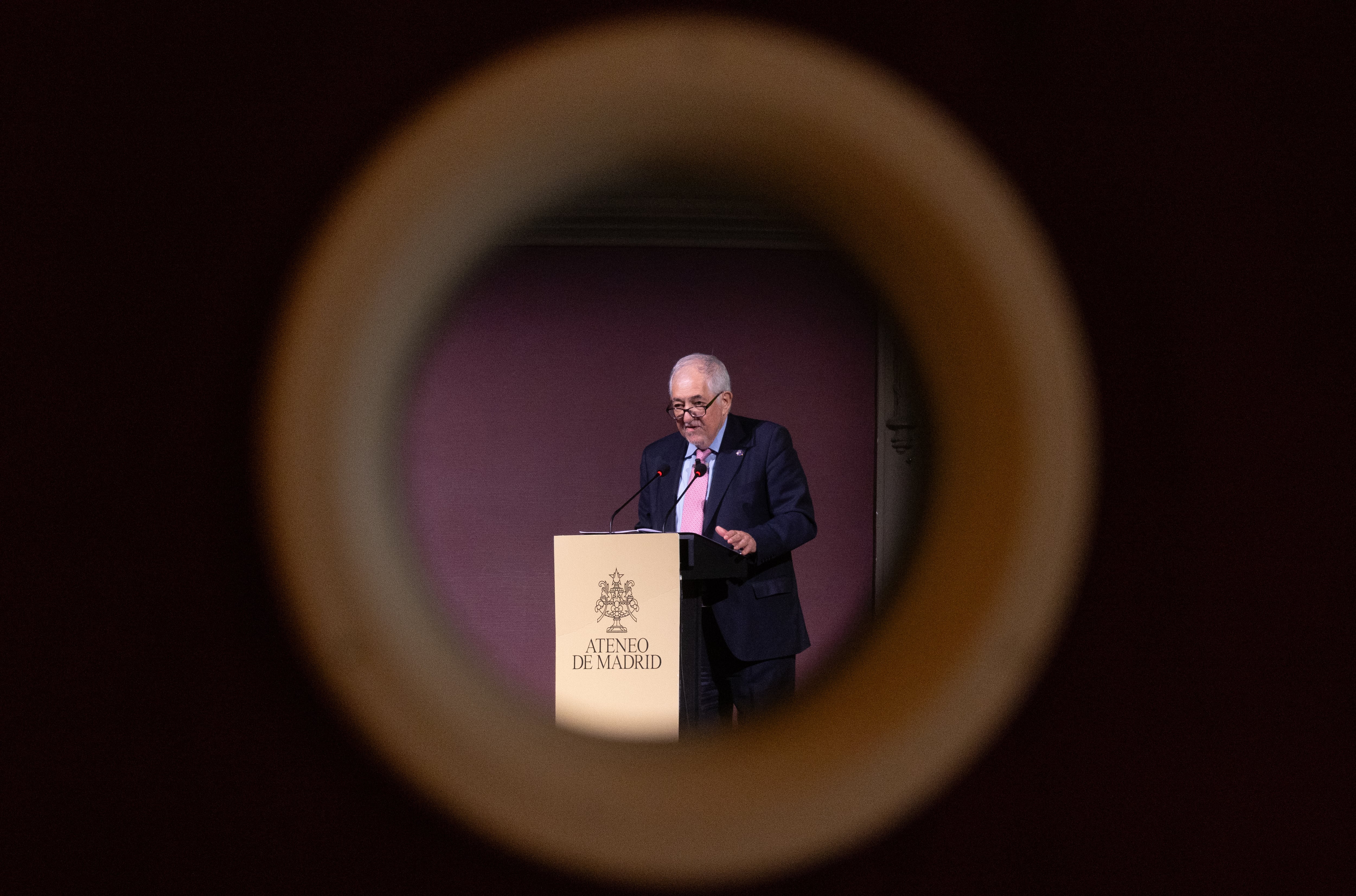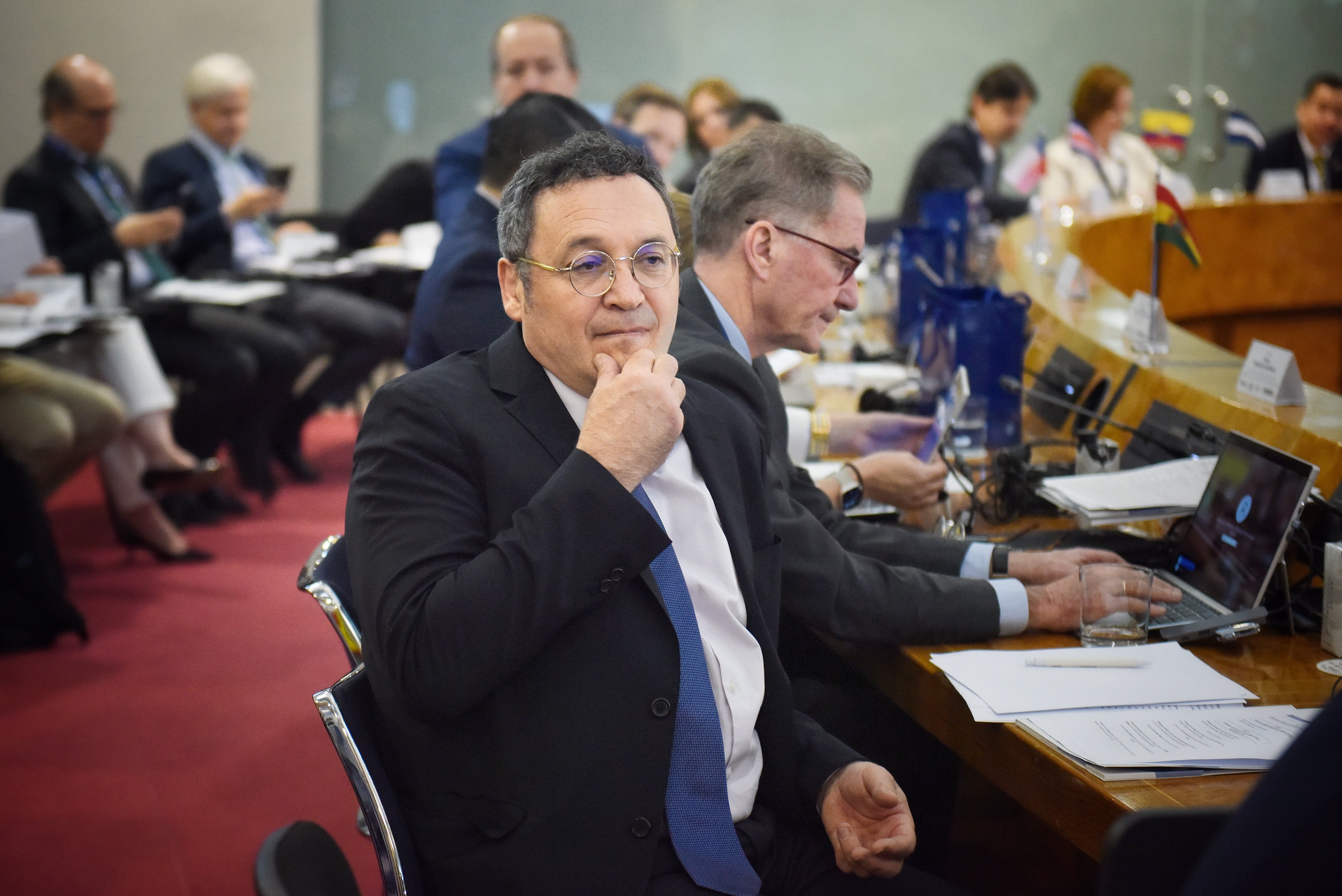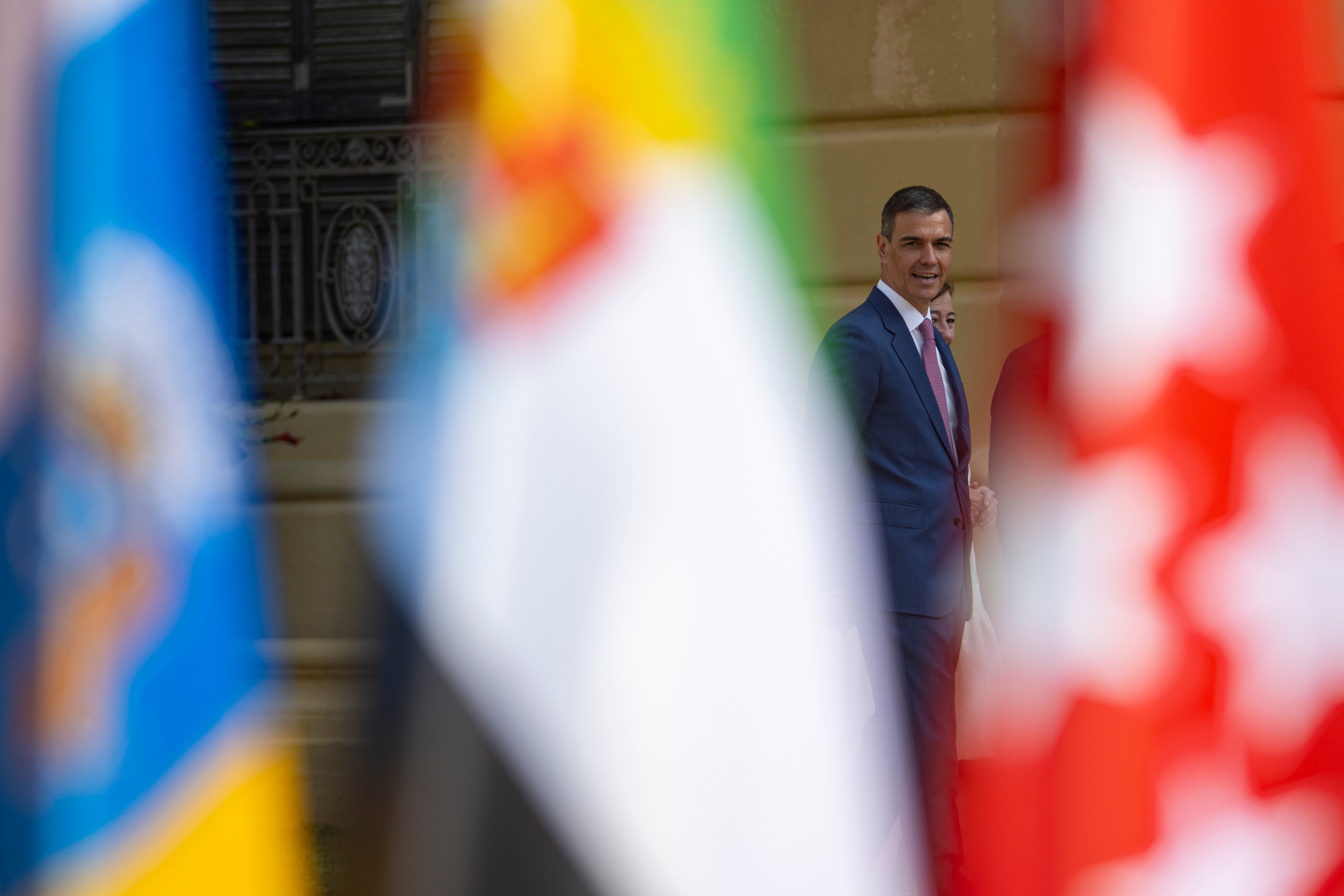The Constitutional leaves a free way for the Seville to audience for their sentences on the ERE before the TJUE | Spain

The Constitutional Court has left the Seville Court for question before European justice the reduction of sentences in the case of ERE. The Guarantees Body has ended on Wednesday its two days of deliberation on the opening of a procedure initiated by the first section of said hearing to raise before the Court of Justice of the European Union (TJUE) if the Constitutional has inapplicated or violated basic principles of European law. This violation would have occurred hypothetically by not maintaining the sentences imposed by ordinary justice in Spain for crimes of embezzlement.
In a brief statement, the guarantees organ has explained that it has analyzed this type of assumptions without making concrete decisions. It informs that the Plenary has examined two cases, that of “the preliminary ruling raised by the Superior Court of Justice of Madrid (TSJM) before the Court of Justice of the European Union (TJUE)”, on an award, an issue that has already generated concern in the Constitutional. And it is added that it has also been deliberate on “the opening of the hearing procedure to the parties, before sending the preliminary ruling, by the Provincial Court of Seville, on the relationship of the Constitutional Court with European Law and the TJUE”, in this case in reference to the Judgments about the ERE of Andalusiaalthough they are not explicitly mentioned.
It is clear, in any case, that the reflection on these types of assumptions, and on the paths that the constitutional can follow before them, has not definitively closed. In the cases raised, impediments will not be put. But this does not mean that this position will always be maintained and before any assumption. The statement of the Guarantees Body explains that « the reflection continues on a complex and evolving issue, » and that, « therefore, the debate remains open, among the court concerns. » The Constitutional finally adds that « no decision has been taken. »
The conclusion, perhaps provisional, leads to the fact that you leave the audience of Seville free, but doubts remain within the Constitutional. In order for this situation to have been especially influential, the various reports of several lawyers of the guarantees body have been, at the request of the Court’s own president, Cándido Conde-Pumpidoand of some magistrates, both of the progressive sector and the conservative block. The common denominator of these opinions is that the initiative of the Seville Court should not be prevented, although there is no unanimity of criteria on the possibility that European justice can alter the decisions of a National Constitutional Court when it interprets and applies a National Constitution, which has its own specificities.
In fact, the European Union Court of Justice itself (TJUE) has been cautious in this type of situations. For the supporters of having closed the passage to the audience of Seville, in short, it is better to let the matter be raised before the European justice to obtain a clarifying result, and that this is inadmissible for the preliminary ruling, or of rejection of its approaches, if at the beginning it is admitted to process, but then rejected when the fund of the matter will be analyzed. This fund consists of whether the Seville audience violated fundamental rights of those convicted in the case of the ERE when he considered them authors of a crime of embezzlement or prevarication without recognizing that his right had been injured to the principle of criminal legality. Said principle, established in article 25.1 of the Constitution, requires that the typification of the crime and the fixation of the penalty be made by legal norm. The aforementioned precept determines that « no one can be convicted or sanctioned by actions or omissions that at the time of occurring do not constitute a crime, lack or administrative infraction, according to the legislation in force at that time. »
Constitutional sentences in the case of ERE they reduced or de facto deactivated the convictions imposed at the time by the audience of Seville in application of this principle. These failures estimated that Andalusia’s budgets that facilitated the fraud of the ERE were not appealed by alleged unconstitutionality, so that it was possible to presume their legality, which would protect the actions of those who acted under this presumption. Besides, When the Supreme confirmed the sentences imposed by the Seville Audience He did it with the vote against magistrates Ana Ferrer and Susana Polo. Both argued that « in the appealed sentence there is a surprising and significant jump in a vacuum when attributing to the defendants outside the Employment Ministry an eventual intent with respect to a fraudulent result produced by third parties », which then diverted funds for a legal purpose.
On the contrary, the constitutional sentences that reviewed the criteria of the Seville Court had the discrepant votes of the five magistrates of the conservative sector of the court. These magistrates – Erique Arnaldo, Concepción Espejel, César Tolosa, José Mario Macías and Ricardo Enriquez – coincided in their respective votes, in substance, in which a “space of impunity” had been generated in the face of certain crimes, by disagreeing the thesis that it cannot be committed when a budget approved by a parliament is applied, in this case that of Andalusia. This is, in substance, the problem to which the EU Court of Justice will face if it decides to admit the preliminary ruling that the Seville Court can expose the Free Way of the Constitutional, unless the continuity of the procedure is rethink, hypothesis that in principle cannot be expected, in view of the steps already given to go before the European justice.







